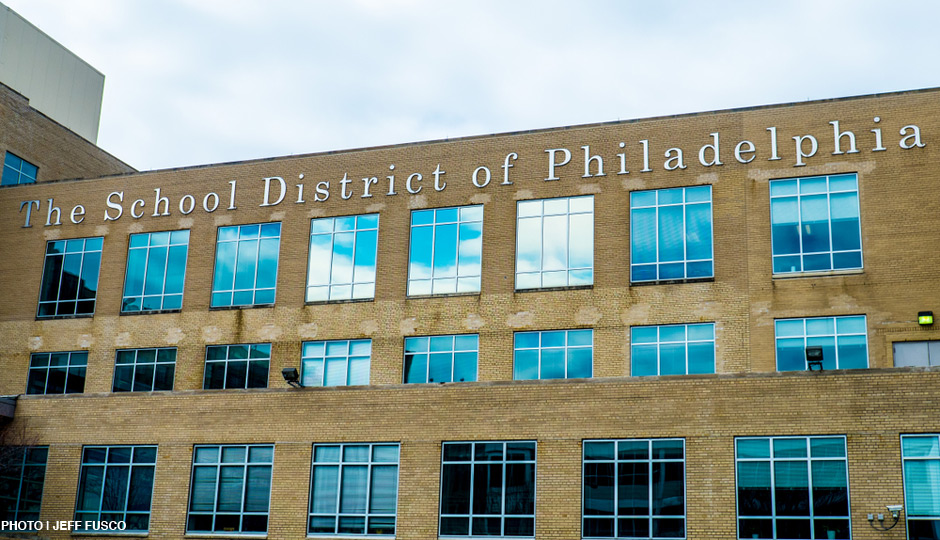Four Resolutions Philadelphia Must Make for 2014
From education and safety to media and race, Philly has got to step it up.
The end of the year finds many resolving to be more… well, resolute about who they are and what they stand for as they reflect on the possibilities of a brand-new year. For the city of Philadelphia, there is boundless potential to be better in 2014 and the years to come. Here are four resolutions we as a city need to make:
Improve Public Education
It should come as no surprise that one aspect of Philadelphia life that needs a change for the better is the city’s education system. The cash-strapped school district began the year with a $300 million budget gap that forced nearly 4,000 layoffs, according to The Notebook. The money-flow issue also threatened the District’s ability to open schools on time. Layoffs have included teachers as well as essential staff such as guidance counselors and school nurses, which in one case, may have proven fatal.
The School District, which is losing enrollment due to the increased presence of charter schools in the city, has sought to control the growth of charters through the School Reform Commission’s SRC-1 adopted in August. SRC-1 also institutes enrollment caps. There are currently 86 charter schools in Philadelphia, educating about 55,000 students. Among the largest cities in the country, Philadelphia has the highest share of charter school students. In some cases, charters are a great alternative to the current school problem, but with “significant barriers to entry” as noted in The Notebook, the city’s basic public education system has to prove viable, too.
Having a strong public education system is crucial to the city’s future. We need to make it a priority as Pennsylvania readies itself to choose a new governor in 2014, and the city prepares to choose a new mayor in 2015. As constituents, we must ask questions about funding, service delivery and collaboration. Let’s set a precedent for accountability.
Ensure Greater Safety
The good news is that there has been a dramatic drop in the city’s homicide rate. The Inquirer reports that the city is on track for its lowest since 1967. But there is still more to be done.
There were still 250 slayings this year.
Just this week, the Archdiocese announced the removal of five priests from the ministry due to child sex abuse by priests or other indicators that “they’re not suitable for ministry in the priesthood,” said archdiocese chairman Ken Gavin.
Philadelphia has been praised in its procedural response improvements to sexual assault reporting, but there’s still much more work to be done. Rape and sexual assault remains underreported with the Rape Abuse & Incest National Network citing some 60 percent of cases unreported to law enforcement. When rapes are reported, they are unlikely to lead to an arrest and prosecution. The pervasiveness of rape culture in the broader culture — the idea that somehow an assault victim brought it on his or herself — enables the shame that keeps victims to from speaking up.
While the police improve their procedural responses, the rest of us can be doing our part, too, by having an active and vocal intolerance of violence of any kind — silence is permission, consent, and acceptance.
Elevate the Media Landscape
Philadelphia media has got to get better (I’m looking at you, Philadelphia Inquirer.) Layoffs, buyouts and infighting have made the city’s once proud news outlet a shell of itself, with the always-curious consolidation of the Daily News and the Inquirer together on Philly.com creating turmoil throughout the ongoing messy ownership battle. The paper’s content has suffered for all of its lack of direction and in journalism circles, folks alternate between snickering and questioning the dot-com’s journalism chops.
Almost a year after “Being White in Philly” (I’m not linking it, but more on that, later) it remains to be seen how Philadelphia magazine will move the needle in terms of staff diversity.
The other problems that beset Philadelphia media channels are no different than they are elsewhere: The traditional journalism model has changed; print outlets rely heavily on freelancers; full-time staff are professional multi-taskers for little pay; and due to corporatization, most radio lacks local nuance.
All of this? Let’s find a way to fix it by establishing new ways of thinking, new ways to innovate — and new ways to get talented people paid, and paid well.
Deal More Honestly and Kindly With Race
You knew this was coming, so here we are. I have a personal rule to stay away from comments sections, but to answer any email that I receive about my writing. This rule started pretty early on in my career — once I realized that the “comments below” section was a cesspool of racism, sexism and any other ism that defied basic human decency. Anonymous cretins usually hang out in the comments section, patting themselves on the back for finally having a space to themselves to say whatever foul thing is on their mind. (Aside: Why aren’t these comments being moderated? Hm.) When Philly Mag ran “Being White In Philly” earlier this year, those cretins rose to the surface — still anonymous, but in print. They rose higher still, with one guy harassing my inbox for months with his race-fueled hate (and let me just say, that kind of thing is terrifying.) Benign, simplistic news reporting on Philly.com is laden with the type of ignorance I’d expect at a Klan rally. This happened. And this.
My Christmas wish this year would be that we all take a step back, reflect and try to be better to one another. The effort alone will prove to be the little we need to greet 2014 with brotherly love (and sisterly affection.)
Follow @MF_Greatest on Twitter.



